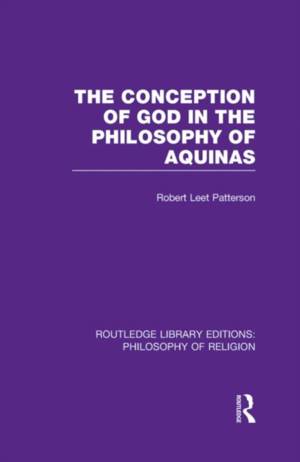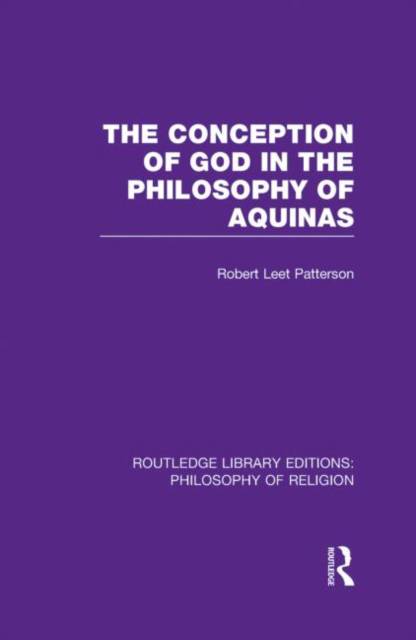
- Retrait gratuit dans votre magasin Club
- 7.000.000 titres dans notre catalogue
- Payer en toute sécurité
- Toujours un magasin près de chez vous
- Retrait gratuit dans votre magasin Club
- 7.000.0000 titres dans notre catalogue
- Payer en toute sécurité
- Toujours un magasin près de chez vous
The Conception of God in the Philosophy of Aquinas
Robert Leet PattersonDescription
At the beginning of the thirteenth century the recovery by western Christendom from the Arabs, Jews and Greeks of the metaphysical treatises of Aristotle, and their translation into Latin, caused a ferment in the intellectual world comparable to that produced by Darwin in the nineteenth century. To vindicate traditional methodoxy Albertus Magnus undertook to harmonize the doctrines of the Church with the Peripatetic philosophy, and this work was carried to its conclusion by his pupil, St Thomas Aquinas, with such success that the latter has become the official philosopher of Roman Catholicism. The system of Aquinas centres in his conception of God, to the exposition and criticism of which this book is devoted.
Spécifications
Parties prenantes
- Auteur(s) :
- Editeur:
Contenu
- Nombre de pages :
- 510
- Langue:
- Anglais
- Collection :
Caractéristiques
- EAN:
- 9780415829977
- Date de parution :
- 11-04-13
- Format:
- Livre relié
- Format numérique:
- Genaaid
- Dimensions :
- 157 mm x 234 mm
- Poids :
- 879 g

Les avis
Nous publions uniquement les avis qui respectent les conditions requises. Consultez nos conditions pour les avis.






